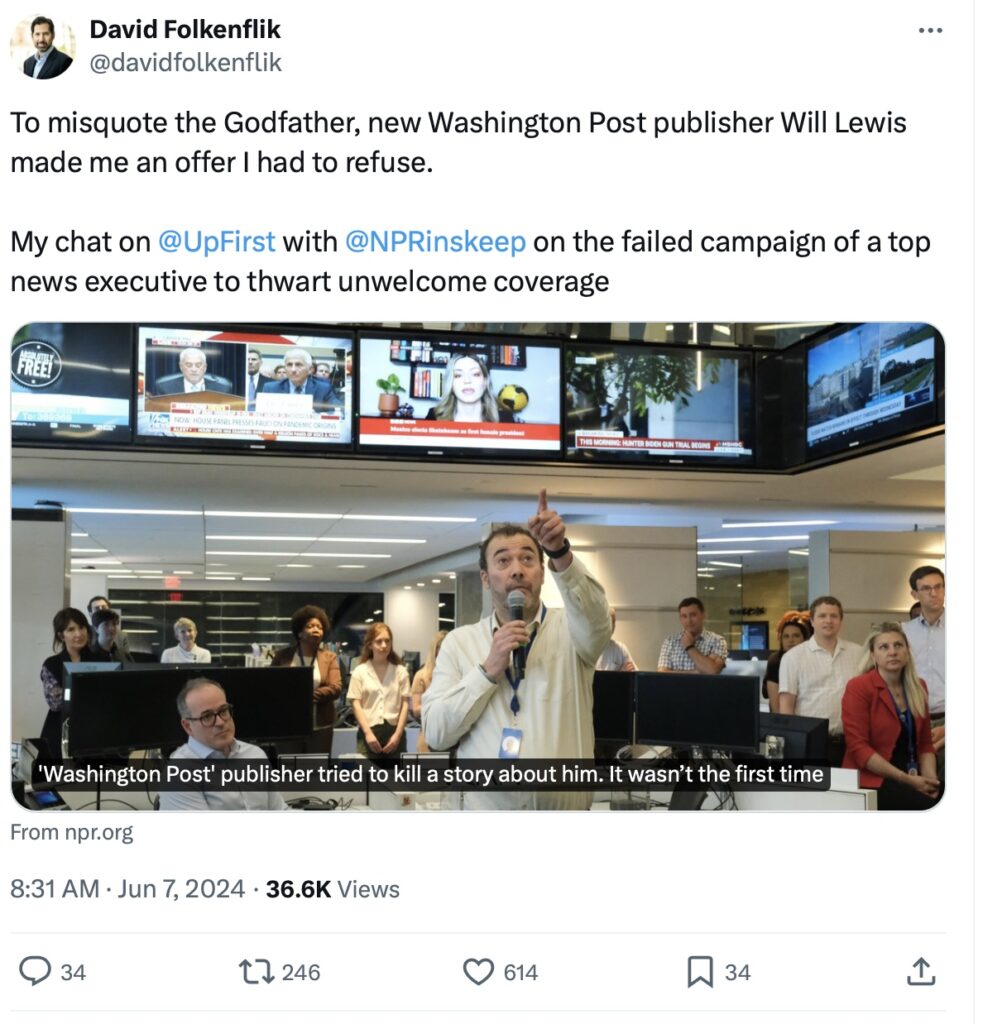NOTE: Sorry for the recent lack of posts. I’ve been writing away on the ninth edition of Mass Communication, Living in a Media World that comes out in 2025. Expect to see posts based on some of that material as the summer progresses. In the mean time, here’s a brief look at the recent dust-up at the Washington Post.
One of the central concerns in journalism is having a separation between the newsroom and management. The business side of the newspaper/news outlet should not be interfering with individual story choices in the newsroom. One of the concerns when Jeff Bezos purchased the Washington Post back in 2013 was that he would interfere with the paper’s coverage of his business empire. For the most part, that fear has not been realized. While he has held a hard line with unions, Bezos has, for the most part, let the paper work independent of his influence. Bezos has also been good, in the past, about providing support for good journalism.
The same cannot be said, apparently, for Washington Post CEO and publisher Will Lewis. According to multiple reports, he forced out Post executive editor Sally Buzbee for her work with the paper’s reporting on a phone hacking scandal at British newspapers owned by Rupert Murdoch’s News Corp. Lewis was being mentioned in a British court case over the scandal as an executive who might have been involved with efforts to hide the evidence of the hacking at the newspapers.
NPR’s media reporter David Folkenflik also reported this week on how Lewis tried to seta up a quid pro quo to give Folkenflik an exclusive about reorganization at the Post’s newsroom in return for Folkenflik dropping work on a story about “widespread criminal practices at media mogul Rupert Murdoch’s British tabloids.”
Lewis has denied doing any of these things.
As of this writing, Buzbee has not commented on her sudden departure.

